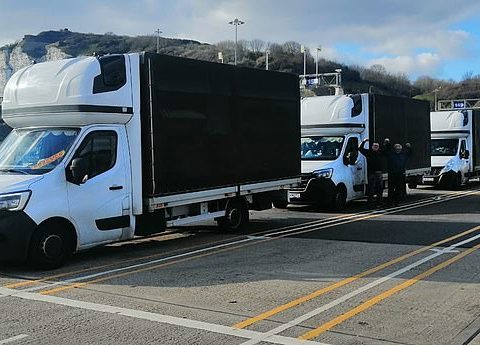Speaking on last night’s BBC Question Time, Chair of Commons Liaison Committee Bernard Jenkins claimed that the bloc has created unreasonable demands at border checks. His comments come after several nights of rioting hit the streets of Northern Ireland in recent weeks.
Earlier this month PSNI Assistant Chief Constable Jonathan Roberts warned that the violence “was at a scale we haven’t seen in Belfast or further afield in Northern Ireland for a number of years”.
Several police officers were injured at interfaces between loyalist and nationalist areas during the violence.
The unrest comes amid rising post-Brexit tensions in pro-British parts of Northern Ireland.
Several pro-British unionists heavily oppose the new trade barriers introduced between Northern Ireland and the rest of the UK due to Brexit.
During last night’s Question Time, an audience member asked the panel: “Did the Government seriously misjudge the loyalist community in Northern Ireland by creating a border in the Irish Sea?”
Presenter Fiona Bruce questioned Mr Jenkins who played a key role in the vote leave campaign.
She asked: “You said in 2018 ‘why has the Northern Ireland border been allowed to hijack the whole negotiation?’ Do you think that a bit more attention should have been paid to it now?”
The Tory MP said the border he was referring to “was of course the border between north and south” of Ireland.
He added: “We were proposing alternative means of dealing with that border and those alternative means of dealing with that border become more and more available as technology develops.
READ MORE: Frost leaves Brussels after crunch talks over Brexit row
“You know there are five times more checks on the trade crossing between GB and Northern Ireland than there is on all the trade that crosses into the European Union.”
The Tory MP said the EU has created an “intense” degree of compliance required at border checks.
He concluded: “The answer is we should try and make the protocol work if we possibly can by making it more reasonable and more practical.
“But if we are all agreeing that this isn’t working very well then we should replace the protocol with something else but that requires flexibility and good will on all sides.”
The Northern Ireland protocol has forced the region to remain in the EU’s single market, meaning goods from Great Britain have to face EU import procedures.
Unionists have claimed that the protocol damages trade and threatens Northern Ireland’s place in the UK.




